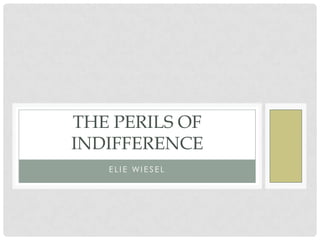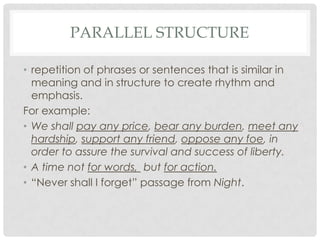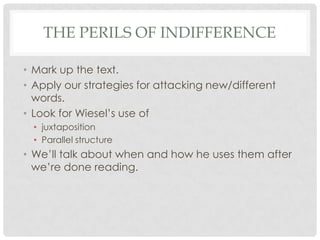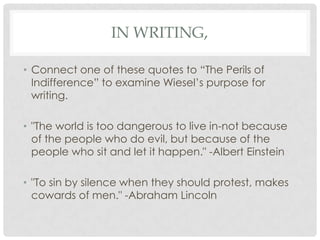Night the perilsofindifference
- 1. THE PERILS OF INDIFFERENCE ELIE WIESEL
- 2. TERMS TO KNOW T H I N G S WR I T E R S D O ¡
- 3. JUXTAPOSITION ? the fact of two things being seen or placed close together with contrasting effect. ? also known as opposition For example: ? the prisoners fighting for bread and the people fighting for coins in Night
- 4. PARALLEL STRUCTURE ? repetition of phrases or sentences that is similar in meaning and in structure to create rhythm and emphasis. For example: ? We shall pay any price, bear any burden, meet any hardship, support any friend, oppose any foe, in order to assure the survival and success of liberty. ? A time not for words, but for action. ? ¡°Never shall I forget¡± passage from Night.
- 5. YOUR TASK
- 6. THE PERILS OF INDIFFERENCE ? Mark up the text. ? Apply our strategies for attacking new/different words. ? Look for Wiesel¡¯s use of ? juxtaposition ? Parallel structure ? We¡¯ll talk about when and how he uses them after we¡¯re done reading.
- 7. REACT
- 8. IN WRITING, ? Connect one of these quotes to ¡°The Perils of Indifference¡± to examine Wiesel¡¯s purpose for writing. ? "The world is too dangerous to live in-not because of the people who do evil, but because of the people who sit and let it happen." -Albert Einstein ? "To sin by silence when they should protest, makes cowards of men." -Abraham Lincoln







